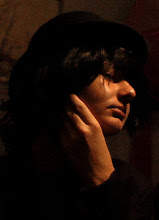Tuesday, January 20, 2009
so you wrote your songs and now they are stolen!
So you wrote your song and made your CD cover BUT do you know about your copyright rights?. read below and goto the ref at www.copyright.org.au. Copyright and External Research Funding I. Introduction Copyright is only one form of Intellectual Property (IP) right, with other including patents (products or processes), trade marks, design, circuit layout rights, plant breeder’s rights and trade secrets. This briefing note provides an overview of the issues and deals primarily with copyright and associated moral rights. Please note that should only be used as a guide and members should obtain specific advice in relation to individual cases. II. Copyright The following section is a summary of material contained in the following Information Sheets published by the Australian Copyright Council (ACC): An introduction to copyright in Australia [G010], Moral rights [G043], and Ownership of copyright [G058], which can be downloaded at http://www.copyright.org.au/publications/infosheets.htm. NTEU acknowledges and thanks the ACC for giving permission to make use of their material contained herein. Copyright [ACC Information Sheet An introduction to copyright in Australia [G010]] Copyright covers the following material: literary works (including books, journal articles, novels, screenplays, poems, song lyrics and reports, and compilations such as anthologies, directories and databases); computer programs; artistic works; dramatic works; musical works; cinematograph films; sound recordings; broadcasts; and published editions (typographical arrangements as opposed to copyright in individual works contained therein). Copyright relates to the ‘work’ and does not protect ideas, concepts, styles, techniques or information contained within the ‘work’. Owners of copyright (see below) in ‘works’ have the exclusive rights to: reproduce the work (including by photocopying, copying by hand, filming, recording and scanning), communicate work to the public (for example, via fax, email, broadcasting, cable or the internet). make public the ‘work’ for the first time, perform in public for the first time (except for artistic works), and make an adaptation (for example, a translation or dramatised version of a literary work) or a translation of a “non-dramatic” version of a dramatic work, or an arrangement or transcription of a musical work. Who owns copyright? [ACC Information Sheet Ownership of copyright [G058]] The general rule is that the author/creator of a work is the first owner of copyright with the following exceptions: the authors/creators have signed a document/contract which says that someone else owns copyright, the author was an employee (rather than a freelancer or volunteer) and created the work as part of his or her usual duties, the work is a photograph commissioned for private or domestic purposes, or a commissioned portrait or engraving, and the work was made by, or under the direction or control of, or was first published by, or under the direction or control of the Commonwealth Government, or a State or Territory government. (Note: This exemption does not apply to Local Government bodies). The question of whether universities own the IP rights in ‘works’ created by their employees is a highly contentious and complex one. Staff should refer to their own university’s IP policies) for guidance. Moral Rights [ACC Information Sheet Moral rights [G043]] Moral rights are separate and distinct from copyright. They are personal legal rights belonging to the authors/creators and cannot be transferred, assigned or sold. They apply to the same range of works as covered by copyright and in Australia are enshrined in legislation [Copyright Act 1968 (Cmth) Part IX - see: http://www.austlii.edu.au/au/legis/cth/consol_act/ca1968133/]. Moral rights give authors/creators the right to: be attributed (or credited) for their work not to have their work falsely attributed; and not to have their work treated in a derogatory way, which means doing anything, including distorting, mutilating or materially altering, destroying or exhibiting a ‘work’ which prejudices the creator’s honour or reputation. Authors/creators cannot assign, transfer or sell their moral rights. While authors/creators can give consent for their work to be used in specific ways, they cannot assign the right to grant such consent. Therefore, while you may not own copyright in ‘works’ that you create as part of externally funded research or as part of your employment, you retain your moral rights over those ‘works’. III. Intellectual Property Rights and Government Funding Bodies When undertaking research with funding from or under the control of the Commonwealth or State/Territory government, in the absence of any specific guidelines or conditions to the contrary it could be assumed that the copyright in any resulting ‘works’ would reside with the funding government. The Australian Research Council (ARC) and the National Health and Medical Research Council (NHMRC) both comply with the National Principles of Intellectual Property Management for Publicly Funded Research, a copy of which can be downloaded from http://www.arc.gov.au/grant_programs/national_ip.htm. Under these principles, the Commonwealth and the funding arrangements of both the ARC and NHMRC “make no claim on the ownership of Intellectual Property” [ARC Funding Agreement regarding funding for Discovery Projects 2006 Section 21.1] created as a result of projects funded by them. The funding agreements are however contracted with the organisation employing the successful applicants (administering institutions) who are required to have policies and procedures that: determine the ownership and/or assignment, if any, of IP rights. Particular attention is required in the case of IP relating to the cultural, spiritual or other aspects of indigenous Australians, that require employees, or grant holders using the administering institution for that purpose, to acknowledge the relevant ownership and rights associated with IP. [NHMRC Interim Guidelines. Intellectual Property Management Section 2.4] Under the ARC and NHMRC contracts it would appear that your university’s IP policies may determine who owns the IP, that is authors/creators or the institution. These principles however are not adopted by all Government granting bodies the Carrick Institute for Learning and Teaching in Higher Education (CILTHE) Limited funding agreements for example clearly states that“Ownership of and Intellectual Property Rights in all Project Material vests in Us,” where Us means CILTHE [Funding Agreement for CILTHE Limited Section 13]. Subject to obtaining CILTHE’s prior agreement, administering institutions are granted “a permanent, irrevocable, royalty-free, non-exclusive licence to use, copy, reproduce and adapt that Project Material any where in the world, and to sublicence any of these rights, for the purposes of this agreement, or any other purpose agreed with Us in writing’’ [CILTHE op cit 13.3]. and about your artistic rights ( especially new Royalty rights legislation) go to http://www.copyright.org.au/policy-research/policy/resale_royalty
Monday, January 12, 2009
its 2009 already!
so are you all ready?
have you made a plan to promote yourself?.. have you included a list of small steps aiming toward larger steps of achievement?... that is how you motivate yourself... with small measurable steps, which can be ticked off as done.. so write it down. make a list. add when you expect to do this.. and JUST DO IT!
it's just one step after another... no matter how long it takes....
have a goal, make a plan, break it into small steps of achievement, stick to it and it will eventuate.
have you made a plan to promote yourself?.. have you included a list of small steps aiming toward larger steps of achievement?... that is how you motivate yourself... with small measurable steps, which can be ticked off as done.. so write it down. make a list. add when you expect to do this.. and JUST DO IT!
it's just one step after another... no matter how long it takes....
have a goal, make a plan, break it into small steps of achievement, stick to it and it will eventuate.
Subscribe to:
Comments (Atom)



